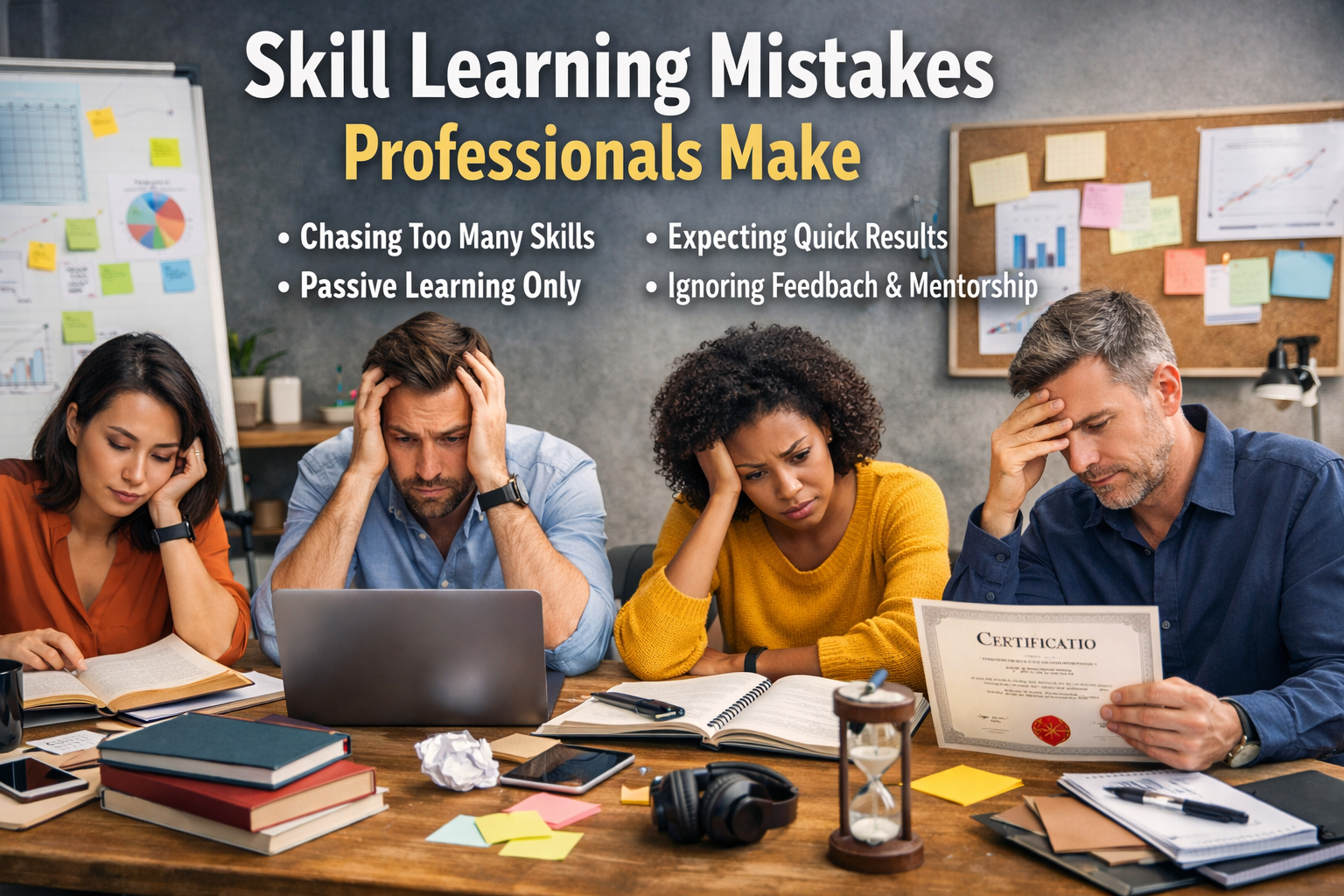Introduction
In today’s time, the software industry is growing very fast, but for freshers getting a job is not easy. Most Entry-Level Software Developer struggle because they don’t have real work experience, competition is tough, and the job search process is confusing. Shortlisting resumes, coding tests, and interviews all feel overwhelming for freshers. To fill this gap, job tools are a strong solution. These tools guide help finding entry-level software jobs, improve their resume, practice skills, and connect with recruiters. In simple words, job tools are a road map for freshers.
Read the summary of this article here.
What is a job tool?
A job tool is a platform, or website that connects candidates with employers.
These tools make the job search process easy and fast, providing candidates with the opportunity to apply for jobs that match their preferences.
There are many job tools available, but not all of them are equally effective.
Even after creating a profile and providing all the necessary details, candidates receive no response and you just keep waiting while time keeps passing by.
Hope, effort, and time all get wasted.
You have to choose the best job tool for you.
Challenges in Finding Entry-Level Software Jobs
- Too many job portals but no clear guidance
In today’s time, there are many job portals, but the problem is that they get confused about which platform is best for them. They can lose their focus by applying everywhere and there is no clear strategy.
Tip – You should use platforms that are fresher-friendly, such as BestJobTool.
- Rejection due to no experience
The biggest challenge is that companies demand experience, but freshers only have academic knowledge. Because of this, the resume did not get shortlisted and pressure had to face rejection many times.
Tip – You can do a project like an internship to gain experience, either paid or unpaid.
- Poorly optimised resume
Freshers mostly make a generic resume, which is not ATS Applicant Tracking System friendly. The result of this resume is that it did not reach the recruiter. Chances of getting shortlisted get low because of no proper keywords and no formatting.
Solution – Read this article to optimize your resume and make it professional as well as impressive.
- Limited networking opportunity
Networking is a strong tool in a job search, but freshers have a less professional network. They neither have contacts in the industry nor do they know about platforms like LinkedIn.
Tip – To build a network, you can use a platform like LinkedIn.
- Lack of Interview preparation
Many freshers learn technical skills, but cracking an interview is another skill. They got stuck in the interview round because of their communication skills, confidence, and problem-solving approach. It is difficult for them to handle this without mock interviews and practice.
Tip -Read this article to know how you can crack an interview.
How Job Tools Simplify Job Hunting for Entry-Level Software Jobs?
- AI-powered job recommendations
Nowadays, job tools recommend jobs based on a candidate’s profile, skills, and interests for a fresher. - Resume building pictures
Job tools help freshers to create a professional and ATS-friendly resume. These tools automatically suggest the right keywords and optimize formatting so that it does not react in the recruiter system. - Skill assessment test and certification
Many job tools provide skill-based quizzes, coding tests, and certificate programs. A fresher can show this as a skill proven by passing this test, which improves their selection chances. - Mock interviews and practice coding challenges
Preparing for an interview is tough, but job tools provide mock interviews and coding challenges. Freshers get confident in real interviews and it improves their problem-solving ability. - Direct connection with the recruiter
Many job tools provide an option to connect directly with recruiters and companies. Freshers get a chance to directly interact with hiring managers by skipping the consultancy or irrelevant portals. Types of Job Tools That Help Freshers.
Types of Job Tools that Help Find Entry-Level Software Jobs
Job Search Platforms
The platforms like Instahyre, Cutshort, and BestJobTools are specially designed for job hunting. Here, freshers can easily apply to companies by creating a profile. Some tools give you AI-based matching by which you will see only relevant jobs and your time will not be wasted
Networking Tools
Networking is a powerful skill that helps freshers connect with industry people. Freshers can showcase their professional profile, connect with recruiters, and receive industry updates with the help of platforms like LinkedIn. Tools like Taplio make their LinkedIn presence more strong.
Coding & Practice Platforms
For software jobs, the most important skill is coding. Platforms like LeadCode, HackerRank, and CodeForces provide an opportunity to practice coding problems for freshers, which helps them improve their problem-solving skills. They get ready for interviews of coding rounds with regular practice.
Interview Prep Tools
Cracking interviews is another challenge. The platform, like Pramp, provides mock interviews. Interviewbit is the best platform for technical preparation. And you can use HireVue to practice for a video interview. These tools give an experience of a real interview environment to a fresher.
Key features One Should Look for in Job Tools.
Beginner-Friendly Interface
Use only those tools that are simple and easy to use and understand.
Entry-Level Filter Option
Use those tools that have fresher, internship, and 0-1 year experience options in the filter section.
Skill-Based Job Matching
Choose those tools that suggest a job to you according to your skills and interests.
Resume Builder or Templates.
There should be an option to create a professional and significant resume automatically according to the profile.
Learning Resources
The tools should have a feature to provide free courses, and interview tips to improve.
Company Reviews & Salary Info
Check reviews and salary info to know more about the companies and roles you’re applying for.
Mobile App or Mobile-Friendly Site
The platform should work well on mobile so you can search and apply anytime.
Verified Jobs
It must protect you from scams or fake job posts — all jobs should be verified.
Job Alerts & Notifications
The tools should give regular updates and a lot of new job openings.
Internships & Freelance Gigs
Look for tools that also offer internships or freelance projects to gain experience.
Benefits of Using Job Tools for Entry-Level Software Jobs
- Save time
Job tools used AI and smart filters to show you only those jobs that are relevant to your skills and interests. You don’t have to browse job listings randomly because it wastes time and effort. With the help of job tools, you will get a directly suitable opportunity. - Builds a professional brand and online presence
Job tools help freshers to create a strong online profile. Like professional branding on LinkedIn or creating a polished profile through resume-building tools. This helps freshers to stand out in front of recruiters. - Increases chances of shortlisting
The chances of shortlisting increase automatically by ATS-friendly resume commendations of the targeted job and because of skill batches. Recruiters feel that the candidate is serious and well prepared after seeing all these. - Improves coding and problem-solving skills
Coding practice tools and mock tests boost the technical knowledge of a fresher. They can be fast and confident in problem-solving through regular practice, which directly reflects their interview performance. - Provides guidance and career insights
Many job tools provide career blogs, webinars, mentorship programs, and salary insights. With this, freshers get to know about the latest trends in the industry, and they can plan their preparation more smartly.
How to Leverage Job Tools Effectively for Entry-Level Software Jobs?
Turn On Alerts & Notifications
Most job platforms send alerts based on your profile. Keep notifications ON so you don’t miss any opportunities.
Spend 10–15 minutes daily
You should spend 10 to 15 minutes daily to see all the updates, new job listings, and to apply.
Customize Your Resume Before Uploading
Don’t use the same resume for every job. Tailor it based on the job description — include relevant keywords.
Use Filters Smartly
Use filters like location, job type, salary range, experience level, etc. This saves time and shows you only relevant jobs.
Complete Your Profile 100%
Incomplete profiles look unprofessional. Add your photo, skills, education, experience, certifications, and a short summary.
Research the Company Before Applying
If a platform is asking for registration or training fees then they are a Red flag. Do not get trapped in all those. Use only a verified platform and do not pay any amount of money to anyone for offering a job.
Use the ‘Save Job’ Feature
If you find a job but don’t want to apply immediately, save it. You can come back to it later without searching again.
Common Mistakes to Avoid in Entry-Level Software Jobs
Missing Alerts or Notifications
You get a job notification, but sometimes you do not check it. You should check daily or weekly according to your filters.
Applying Without Reading the Job Description
A lot of the time, candidates apply to a job after seeing the job title only; they do not read the full description of the job. For example, if there is a job update of a software developer, the candidate just reads the title and applies for it, but they do not see the full description of the job, which type of software developer the company needs, whether the company needs digital marketing or field marketing. Every candidate must read the job description before applying.
Ignoring Skill Requirements
If you are applying to those jobs where required skills are missing, then you should avoid making this mistake. You will never get any response from there because the relevant skill is missing. If you really want to apply for the job, you need to first learn the skill, and then you can apply for the job.
Missing Alerts or Notifications
Ignoring job alerts can make you minutes daily opportunities. Do not miss any job alerts, even a single job alert, because you don’t know which job will match your skills.
Updating Your Profile
An outdated profile gives a poor impression. Keep skills, education, and experience updated.
Not Using Filters Properly
You may waste time seeing irrelevant jobs if you don’t use filters like location, experience, or field.
Falling for Scams or Fake Jobs
Don’t pay money to apply. Always check for verified listings.
Future of Job Tools for Entry-Level Software Jobs
In the future, job tools are going to be more advanced and smart, especially for freshers. As of now, job tools mainly optimise resumes, recommend jobs, and prepare for interviews, but in the future, AI and automation will take it to the next level. First, let’s talk about AI power matching- future job tools will suggest a perfect job match by analysing skills, project learning history, and even personality traits of a fresher. It means there will be no need to apply for a random system, which will automatically sort the best opportunities for you.
Automation will also make the hiring process smoother. For example, resume screening, initial assessment, and even pre-interview conversations will be done through an automatic chatbot or AI systems. It will save the time of both the recruiter and the candidate, and the pressure will be relieved soon. Data-driven hiring will also be a major trend in hiring. Companies and job tools both will track the performance data, skill test scores, and learning analytics of freshers for shortlisting. It means more importance will be given to actual skill and performance rather than the marksheet or the degree. Future job tools will also give personalised career guidance to freshers. For example, a tool will suggest which skill they have to learn, with certification, will be valuable, and which industry has more growth opportunities for them.
In the near future, job tools will not just be a job finding platform; instead, they will be a career coach and mentor that makes the hiring journey easier, transparent, and faster for freshers.
Conclusion
In today’s competitive software job market, getting an entry-level job for freshers is not easy. A job tool can make this process simple and effective with the use of right job tool. ATS-friendly resume building, AI-powered job recommendation, skill assessments, mock interviews, and networking tools give a strong boost to a fresher. It is not only a fast job hunting but also improves skills, builds confidence, and helps to stand out in front of recruiters. If freshers use these tools smartly then finding jobs and starting a career will be an easy and structured function.







Leave a Reply